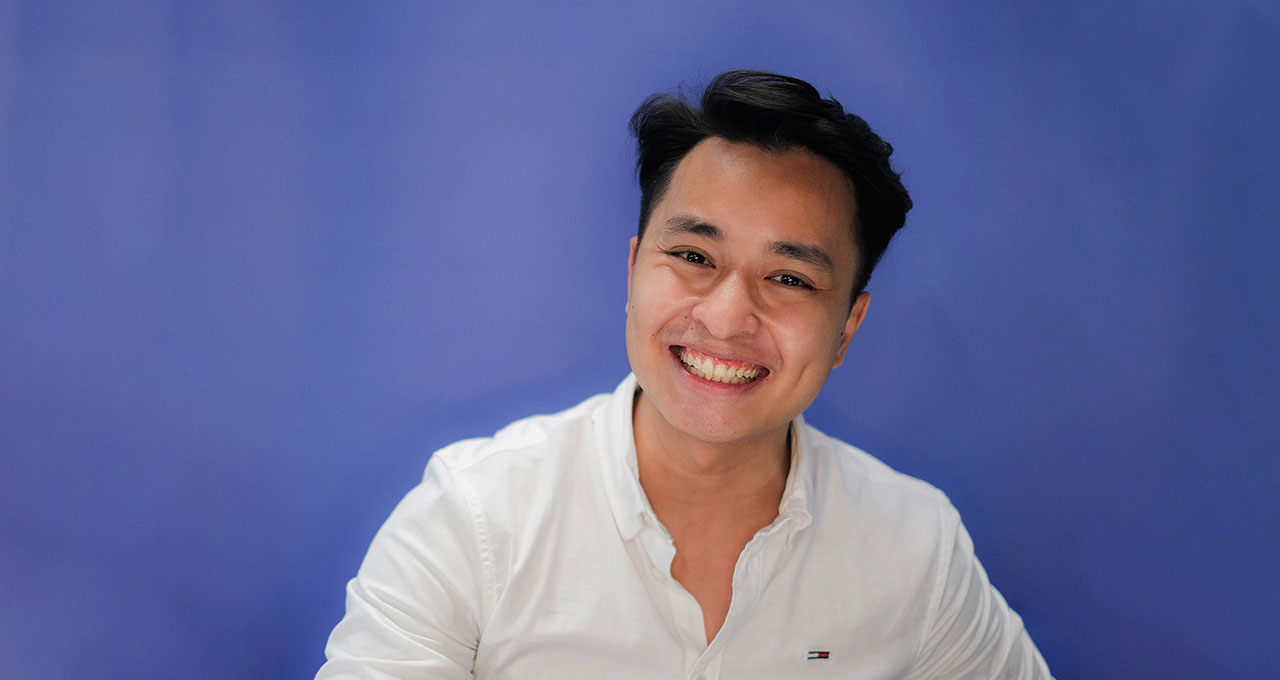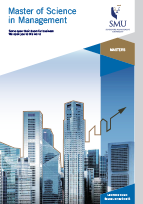
Rising to a management position takes a lot more than simply being ready for a promotion. A major shift from being an employee to a leader, becoming a manager requires the ability to make tough calls, take on bigger responsibilities, and juggle between being detail-oriented and seeing the big picture — all while trusting employees to fulfil their potential without breathing down their necks. As a Gallup study on “The State of the American Manager” found, a manager also plays a pivotal role in impacting the productivity and engagement of a team: half of the study’s respondents have admitted to leaving a job just to “get away from their manager at some point in their career.”
The challenge of being an effective leader has also been made more difficult amid a pandemic. As SMU Master of Science in Management (MiM) alumnus Paolo Castro shares: “One of the largest challenges of working during a pandemic is managing the team remotely. With less face time with my sales team, the whole aspect of personal camaraderie and morale-building is challenged.”
Fortunately, the sales manager of co-living group Cove has met the rising challenge head-on, through more frequent check-ins on his team via one-on-one meetings.
“I fully trust my team to be able to deliver on the work, but my job as their manager is to empower them as an individual; both mentally as well as technically, while walking them through challenges they face,” explains Paolo.
“I find that keeping the discussion strictly to work during one-on-one sessions is not effective in making sure we can take care of our people. Sometimes, it’s not always all about business.”
Although Paolo might now be walking the talk of good management practices, climbing up the corporate ranks was not always part of his career trajectory. In fact, he had previously completed his undergraduate studies in biology, with a minor in Japanese — rather than business.
To embark on a track that would allow him to reach leadership roles, Paolo decided to further his studies in Singapore. The presence of SMEs, as well as other large multinational companies here served as an incentive, as Paolo foresaw an opportunity to build a career in the city-state. He believed it to be a good training ground to exponentially grow his skillset in a relatively short amount of time.
“I ultimately found that I enjoyed leading and also mentoring other individuals to help them perform at their best,” reveals Paolo.
“A biology degree would unfortunately not help put me in a position of management, so I decided to take up a business degree instead, which would help me get my foot in the door for a wider range of career options.”
The biggest challenges during the programme, Paolo admits, were classes that he had no prior foundation or knowledge about, such as accounting and finance. With most of his cohort equipped with business degrees, he felt the pressure of having to keep up during group projects and class discussions. Fortunately, Paolo managed to play catch-up by putting in heavy hours at the library, doing his research on the subjects he was unfamiliar with.
He adds: “I would say my lack of knowledge worked to my advantage because it forced me to be hungry.”
The hard work had certainly paid off, as Paolo also landed a lucrative six-month internship during the programme, which provided him with much-needed experience in management and allowed him to apply the knowledge acquired in class to the real world. He recalls how the experience helped filter out content that was not holistically applicable to real-world business problems, while practising learnings that were relevant to his job.
And rather than being a small cog in a big wheel, Paolo thought it was fortuitous that his first internship was with a smaller company, working under a founder who had just started a new vertical. This allowed him to take on greater responsibility in managing and growing the burgeoning business and provided him with an extra edge when applying for a full-time job.
“On hindsight, it was quite a risk he (founder) took,” recalls Paolo.
“I was forced to be the HR, accountant, operations manager, and sales manager, all in one. It was very stressful. The hours were quite unforgiving because sometimes I’d have to attend to an emergency at midnight while preparing for a final exam the following day. However, comfort seldom brings growth.”
During the internship, he managed to form a strong working relationship with the co-founder of one of the accounts he had managed. Coincidentally, as he reached the tail-end of the MiM programme, Paolo chanced upon a job listing on LinkedIn from the co-founder’s company and directly reached out to ask if he could submit his resumé for consideration. The company was Cove.
Today, Paolo is the sales manager for the Singapore branch of the multinational organisation, where he currently manages a team of five, responsible for ensuring that all of Cove’s 400 rooms across Singapore are occupied while reducing vacancies between tenancies as much as possible.
“The pandemic has made an impact on the demand for housing, particularly pricing, as people are a bit more conservative in their expenses given the lack of stability,” shares Paolo.
“With the majority of our target demographic being expatriates who fly in and out of Singapore, the team needed to find creative ways to generate demand here.”
Fortunately, the demand for a roof over their heads will always be there, so the business has been surprisingly resilient as compared to the low occupancy rates faced by hotels and serviced residences. As the sales funnel is inbound, Paolo’s team focuses on collecting consumer analytics insights for every lead to feedback to his marketing team so that the messaging can be adjusted, and for Cove’s acquisitions team to adapt their product offerings on new properties.
“All our decisions about pricing, negotiations, and how aggressively we can press on a lead are data-driven,” says Paolo.
“Gut feel works, but it’s never going to be as reliable as data. To this day, I continue to refer back to my notes on strategic management, operations, project management and marketing to aid my role at Cove.”
Speak to our Admissions Advisors
Lee Kong Chian School of Business
Postgraduate Admissions
Graduate Programmes Office
50 Stamford Rd, Singapore 178899
Tel: +65 6828 0882
Join us at the upcoming events
Ofukacho, 1−1 ヨドバシ梅田タワ
Osaka, Kita Ward, 〒530-0011, Japan
Kyobashi, 1 Chome−3−5 三井ガーデンホテル 1F
Chuo City, Tokyo, 〒104-0031, Japan
